
Internet for Trust - Regulating Digital Platforms for Information as a Public Good
UNESCO Global Conference
21-23 February 2023, UNESCO Headquarters in Paris
The internet and social media have empowered societies with enormous opportunities for people to communicate, engage and learn. However, digital platforms have also been used as vectors for disinformation, hate speech, conspiracy theories and other content potentially harmful to democracy and human rights. Current regulatory systems have yet to catch up with these challenges.
Taking forward the Windhoek+30 Declaration on Information as a Public Good, UNESCO will host a global conference gathering ministers, regulators, judicial actors, the private sector, the UN family, civil society, academia, intergovernmental organizations and the technical community from around the world to shape digital platform regulation. The leadup to the conference and the event itself will offer a forum for multistakeholder consultations of a guidance for regulating digital platforms for actors seeking to regulate, co-regulate and self-regulate digital platforms, with the aim of supporting freedom of expression and the availability of accurate and reliable information in the public sphere.
The “Guidance on Regulating Digital Platforms: a multistakeholder approach” is now publicly available. We are welcoming your inputs and observations. Read more here.
Registration to the global conference is now open
Registration is mandatory for all participants. Click below to access the form.
Guidance for regulation
UNESCO is conducting multistakeholder consultations to co-create a guidance for regulating digital platforms to support states and companies while dealing with content that potentially damages human rights and democracy.
The guidance for regulation can:
- Act as a guide to regulators, governments, legislatures and companies around the world when they are developing, enforcing or implementing regulation to manage content online.
- Serve as a tool for civil society for holding governments and companies accountable to their commitments and for advocating for a regulatory system that safeguards freedom of expression.
- Take forward the Windhoek+30 Declaration on Information as a Public Good.
The “Guidance on Regulating Digital Platforms: a multistakeholder approach” is now publicly available in the conference's website. We are welcoming your inputs and observations. The guidance for regulating digital platforms has the aim to supporting freedom of expression and the availability of accurate and reliable information in the public sphere.
- Consult the document here.
- Read more about the guidance.
315f.jpg?h=a3459733&itok=pBOI095C)
What UNESCO does to protect freedom of expression online
Check our publications and find out more about UNESCO's work to combat disinformation, hate speech and other harmful content spread online.
Publications
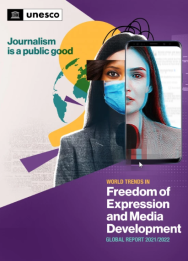
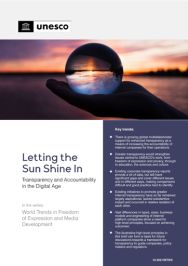
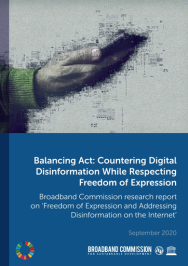
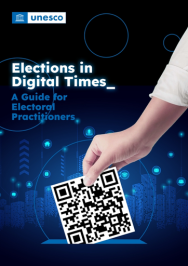
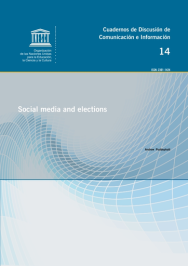
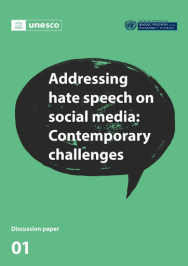
More resources and stories
Contacts

Phone: +33145681294

Phone: +33145681294


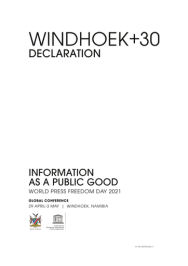
Social Media 4 Peace
The UNESCO project 'Social Media 4 Peace' funded by the European Union works to strengthen the resilience of societies to potentially harmful content spread online, in particular hate speech inciting violence while at the same time protecting freedom of expression. The project also works to promote peace through digital technologies, notably social media.